Coffee and Prostate Cancer: Go Ahead, Have Another Cup
Here’s some news about coffee, the good, the bad – actually, there is no bad to this story. Coffee is good! If you can’t drink caffeinated coffee, decaf is good, too! Here’s why:
Although most scientists are not yet willing to step out on a limb and proclaim definitively that drinking coffee prevents cancer (this story is mostly about prostate cancer, but beneficial effects have been seen in other types of cancers, too) or makes you less likely to have aggressive, high-grade disease if you do get it, undeniable evidence from several new studies suggests that this may indeed be the case.
Best of all, there’s no downside. If you drink coffee, keep right on drinking it. Fill it to the brim! And if you don’t already drink it, you may want to consider it.
What’s going on here? What about coffee has us so – pardon the pun – perked up? Well, there’s a latte to consider, so let’s look at the grounds for optimism starting with these findings, published in the International Journal of Cancer:
In a study from the Moli-sani Project, investigators looked at coffee consumption in nearly 7,000 men, age 50 and older, in the Molise region – a mountainous, mostly rural part of Italy. They followed them, on average, for more than four years, and during this time 100 of these men were diagnosed with prostate cancer. (Note: unlike many American men, these men were not getting routine screening, so it’s possible that some of them may have had not-yet diagnosed prostate cancer.) The average age at diagnosis was 67, and of these men, half had cancer that was Gleason grade 7 or higher; 8 percent had distant metastases, and 6 percent had local metastases. In separate studies, the Italian investigators also showed that both coffee and caffeine can slow down the growth rate and spread of prostate cancer cells in the laboratory.
But what about actually drinking coffee? It turns out that there was an inverse association between coffee intake and prostate cancer risk. In other words, the more coffee the men drank every day, the less likely they were to develop prostate cancer. In this study, the men who drank more than three cups a day had the lowest risk of getting prostate cancer.
Note: The investigators define more than three cups as drinking 90 grams or more per day. This actually turns out to be just 3.17 ounces; in Italy, coffee consumption tends to be in cute little espresso cups, and the cultural tendency is not to sit for hours nursing a cup at a café, but to just knock it back and get on with your business. So a dose of coffee here is more like a shot of espresso to us. In comparison, the smallest size at Starbucks, a Short, is 8 ounces; a Tall is 12 ounces, and a Grande is 16 ounces. At Dunkin’ Donuts, a Small is 10 ounces, a Medium is 14 ounces, and a Large is 20 ounces.
It’s also worth noting that these men most likely took their coffee black, or maybe with a bit of milk or cream. In other words, they didn’t have a pump of hazelnut, five shots of whipped cream, ice cream, soy milk, almond milk, sugar, stevia, Nutrasweet, Sweet & Low, or any of the many things we can think of in America to add to our coffee.
So just think pure coffee here. Also, their coffee was unfiltered – not brewed or instant, as coffee is for many of us on this side of the pond. This means that it may have some other prostate cancer-suppressing molecular components that get filtered out in other forms of coffee.
Still, the results are striking. Of all the foods and potential things you could take to lower your risk of getting prostate cancer – scientists believe the most promising of these include taking a baby aspirin a day, eating lots of tomatoes cooked in olive oil, taking vitamin D, or being on statins to lower cholesterol; all of these lower the inflammatory environment in your body and make it less likely for cancer to develop – coffee in this and other studies seems to have the best hazard ratio; that’s a scientific term that ranks the probability of being true in real life, and not just in the study.
So why aren’t we standing from the rooftops shouting: Coffee for everyone! Run, don’t walk, to the nearest percolator! Because, says Harvard nutritional epidemiologist and PCF-funded investigator Kathy Wilson, Sc.D., it is just so darn hard to know exactly what’s going on when you look at things in the diet. I recently interviewed her for the Prostate Cancer Foundation’s website.
For example: How do we know that the vast majority of these men didn’t get prostate cancer just because they downed a lot of coffee? Maybe it was what they were eating – which was almost certainly the Mediterranean diet, high in fruits and vegetables and olive oil, and low in red meat? Did they drink tea or eat chocolate? Both of these substances are chock full of antioxidants, as well.
Or maybe it was what they were not eating – high-fat, high-carb stuff like bacon cheeseburgers and chili fries. Or maybe it was what they were not drinking – super-sized sodas, energy drinks, or sweet tea?
“The Italian investigators adjusted for other factors in their study – such as total energy intake, smoking, BMI (how fat the men were) – and found that the coffee benefit was independent of those things,” says Wilson.
Wilson’s work focuses on understanding the role diet plays in prostate cancer, and she has been zeroing in on coffee for years. In fact, she was first author of a large Harvard-led study published in the Journal of the National Cancer Institute in 2011, in which investigators also showed an inverse association between coffee and prostate cancer. “The Italian authors put a lot of weight on the unfiltered coffee that’s consumed in Italy, but I don’t think we can rule out that the lowered risk is just an effect of coffee itself, filtered or unfiltered.”
In their study, Wilson and colleagues also found that coffee was associated with a lower risk of getting prostate cancer, and of developing aggressive, potentially lethal cancer. Men who drink one to three cups a day had a 29-percent lower risk, and the risk went down as the coffee drinking went up. Men who drank at least six cups a day had a 60-percent lower risk. “The findings were similar for caffeinated and decaffeinated coffee,” says Wilson. This was perhaps even more remarkable because they also found that heavy coffee drinkers also tended to be smokers – and smoking cigarettes is known to raise the risk of getting prostate cancer, and of developing a more aggressive form of the disease.
In other studies, drinking coffee has been linked to a lower risk of developing Type 2 diabetes; liver cancer, endometrial cancer, postmenopausal cancer and colorectal cancer.
What does coffee do in the prostate? This is very difficult to study. Ideally, in men who decide to have their cancer treated with surgery, scientists might look at the biopsy tissue from men at the diagnosis of prostate cancer, then have those men drink several cups of coffee every day until their surgery, and compare the tissue from the entire removed prostate with the biopsy. Maybe they would find a change in aggressiveness, or in inflammatory markers, or in some other measurable thing that might show more precisely what coffee does in the prostate.
What’s in coffee, anyway? Well, that’s another tough one. There are actually thousands of compounds. Metabolites found at high concentrations in caffeine. Roasting products. Polyphenols. Diterpenes, products in the oil of the coffee bean (these are strained out in filtered coffee). Which one is the golden ticket to better health? There may be more than one, maybe more than a hundred. Nobody knows for sure.
Okay, well then, maybe the key is in what coffee does in the body. Just what does it do, anyway?
Coffee has powerful antioxidant effects. As Wilson notes, “coffee is the number one source of antioxidants in the diet of the American man.” This is very interesting, and also pretty sad; it means the average American man is not loading up on antioxidants in fruit and vegetable form in his daily meal plan.
Coffee is also anti-inflammatory, says Wilson. “Many studies have shown that heavy coffee drinkers have lower levels of circulating inflammatory markers in their blood.”
Coffee has helpful effects on insulin and glucose metabolism. “It reduces blood glucose levels, reduces intestinal glucose absorption, and reduces liver glucose output.”
Coffee cuts lipids, the body’s fatty acids. “It reduces fasting cholesterol and triglyceride levels.”
Coffee helps the gut’s microbiome. It increases diversity in the microbiome, the millions of bacteria living happily in your gut. “There are a lot of immune cells along the gut, and the increased diversity in the microbiome may inhibit inflammation elsewhere in the body.” There may be some important interplay between the gut flora and inflammation, and it may be that coffee tips the balance away from inflammation and the development of cancer.
How much coffee should you drink? For how long do you need to drink coffee to be protected from cancer? Do men who cut down on caffeine later in life because of urinary problems (from BPH, benign enlargement of the prostate) lower this protective shield and somehow open the door to cancer?
Add these and a whole bunch of other questions to the large list of things nobody knows the answers to – for now. But scientists are working on it, and the Prostate Cancer Foundation is funding studies in four labs in the UK and U.S., says medical oncologist Jonathan Simons, M.D., CEO of the PCF. “Scientists who have expertise in pharmacology, biochemistry are curious about this unfiltered Italian coffee phenomenon. They’re undertaking the detective work needed to figure out the biochemistry and gene signaling of it.” Such work has paid off before, he adds. “Two of the most important drugs in internal medicine, digoxin and aspirin, come from leaves and tree bark plus intensive and persistent detective work by pharmacologists who were sure the clinical effects were real.”
One thing does seem pretty clear, notes Wilson: “There’s a perception that coffee is not good for you, that it’s a habit you should kick, or that you should cut back. But all the evidence is that if anything, coffee is beneficial. It’s really quite striking.”
And yet, she adds, “it’s probably premature to actively recommend coffee, or tell guys who don’t drink coffee that they should start drinking it. But coffee is not bad for you in terms of chronic health. If people are already drinking coffee, they should feel fine about it – not, ‘this is bad for me in the long run.’ In long-term health, coffee seems like it’s doing good things.”
One group not particularly well represented in the Harvard Health Professionals study or the Italian study is men of African descent. Prostate cancer is different in these men; it is more aggressive, it develops in a harder-to diagnose part of the prostate, different genes are involved in its development and progression, and some of the biomarkers that help monitor the disease do not work as well in these men. However, Wilson notes: “It is interesting that in overall U.S. diet data, black men do drink less coffee than white men.” File that one away for future studies; it’s hard to know what to make of that one fact on its own.
Because trying to find the magic pill – whether it’s beta carotene or selenium, or any of the millions of compounds that could potentially be isolated from the diet and sold as a supplement – has not worked yet, your best bet is just to err on the side of healthy. Eat lots of fruits and vegetables, particularly tomatoes, don’t eat a lot of red meat, don’t load up on carbs and sugar. Watch your weight; obesity is linked to a higher risk of prostate cancer. Don’t smoke.
And feel free to have another cup of Joe.
In addition to the book, I have written about this story and much more about prostate cancer on the Prostate Cancer Foundation’s website, pcf.org. The stories I’ve written are under the categories, “Understanding Prostate Cancer,” and “For Patients.” As Patrick Walsh and I have said for years in our books, Knowledge is power: Saving your life may start with you going to the doctor, and knowing the right questions to ask. I hope all men will put prostate cancer on their radar. Get a baseline PSA blood test in your early 40s, and if you are of African descent, or if cancer and/or prostate cancer runs in your family, you need to be screened regularly for the disease. Many doctors don’t do this, so it’s up to you to ask for it.
©Janet Farrar Worthington


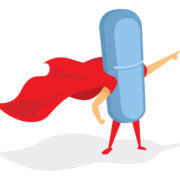
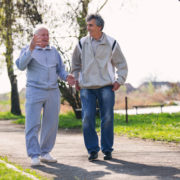
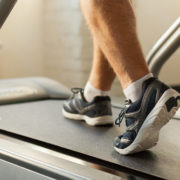
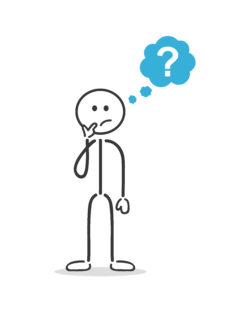
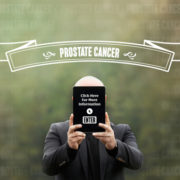


Leave a Reply
Want to join the discussion?Feel free to contribute!